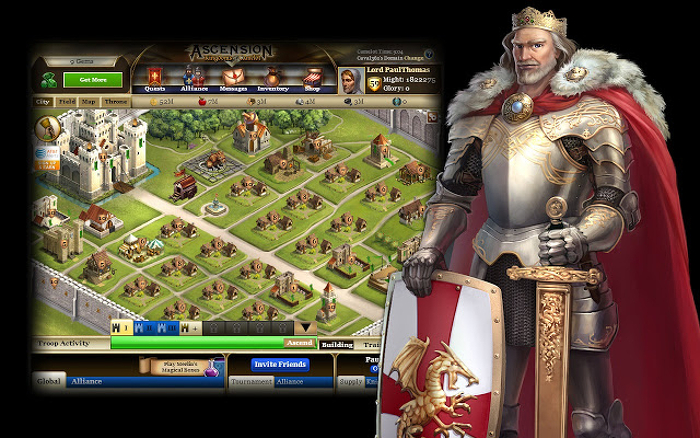As consumers look for more top-notch games compared to “quickie” titles that release on the market, it is clear that mobile is undergoing a sea change.
Kabam president Aaron Loeb recently spoke with GamesIndustry International about how the mobile market is changing, particularly with production, distribution, marketing and consumption of games in app stores. The idea of keeping momentum within the ever-changing mobile environment is key to survival, according to him.
“Five years ago, mobile could best be characterized as a market where the best attribute you could have as a developer was speed. Today, the best attribute you can have as a developer is reliability,” he said. “That requires different studios, that requires different leadership, and that requires different ways of thinking about steering development.”
For Kabam, launch has become an increasingly important factor in the success of a mobile game. “It is these launches that set the trajectory of a title. The launch if a big deal in mobile now, in a way that it wasn’t a few years ago. You had the sense that you could build a business over two years. You still can do that, by the way, but you don’t get two chances to make a first impression.
“We are certainly thinking about how to make a very compelling, very satisfying experience at launch, which then continues to grow after launch…we don’t agree with [MVP strategy] any more. We believe we can look at the market now, and see the tastes of the customer and the player, and we can determine at some root level what is a good game and what is a bad game. That doesn’t mean that if you release a good game it will succeed – it’s still an incredibly competitive market – but at the very least you can have more influence on the outcome than treating it all like a coin toss.”
Loeb is very familiar with the market, having previously worked for Electronic Arts before joining Kabam last year, and teaming with CEO Kevin Choi to make it a defining leader in mobile, behind such games as Marvel Contest of Champions and Spirit Lords. “The point is that we’re taking the best design elements of those traditional games that our team members have been building for years Diablo, Dragon Age, real classics and bring them truly into mobile,” said Loeb. “We’re not trying to recreate your love of Diablo in the 90’s. We’re trying to create a new language of games for mobile.”
And that means deepening the mobile experience from both a consumer and marketing perspective, and not necessarily just putting out games just to have them on the market. “Games that are purely versions of Solitaire minimal attention, brain-clearing exercises will always have their place in mobile, but more sophisticated mobile consumers want games they can have meaningful relationships with,” he continued. “So character they care about, and other players they can care about, in ways both good and ill.”
As far as the players are concerned, “[They] are demanding games with more compelling loops, a richer sense of gameplay satisfaction,” he said. “The historical notion of what that means from the console industry is deep immersion, 80 hours of gameplay, you can disappear into your man or woman cave and never come up for air. That is not great mobile gameplay.”

